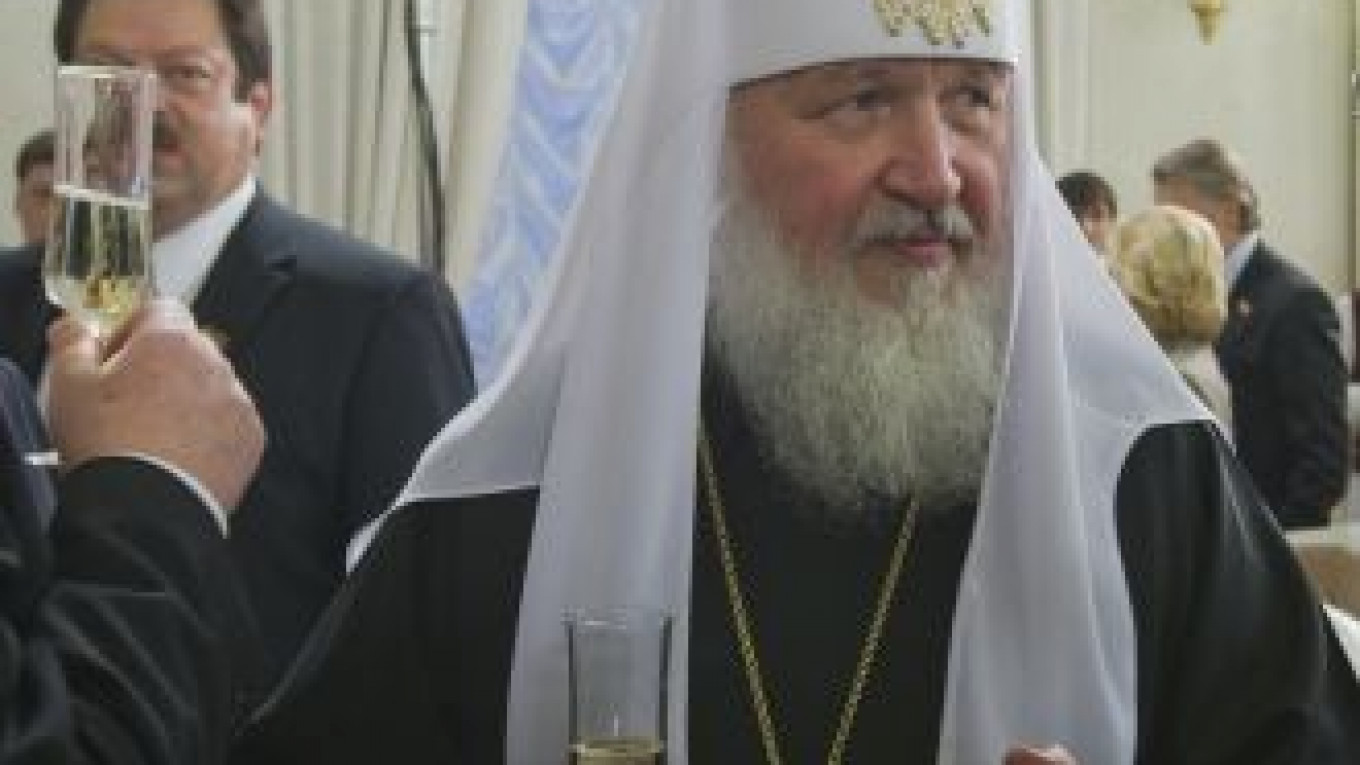WARSAW — The leaders of the Russian Orthodox Church and Poland's Catholic church have signed a document that urges their nations to forgive each other for past wrongs.
The signing in Warsaw on Friday during the first visit to Poland by Patriarch Kirill has been described by the churches as a historic act of reconciliation and the establishment of a bridge between the denominations. The two nations have feuded for centuries and their ties are still marked by distrust.
"We appeal to our believers to ask for the forgiveness of wrongs, injustice and every evil committed against each other," the document said. "We are certain that this is the first and the most important step toward rebuilding mutual trust, which is a necessary element of a lasting community and full reconciliation between people."
The document was signed during a ceremony at Warsaw's Royal Castle by Patriarch Kirill and Archbishop Jozef Michalik, the Polish church's highest-ranking leader.
The document that Michalik and Kirill signed mentions the "open enmity, even fighting between our nations" in the past and calls for a "brotherly dialogue" in all walks of life. Church leaders said it is not another political declaration, but a religion-motivated call to the hearts and minds of ordinary people in both nations.
Kirill stressed that serving Christian religion obliged church leaders to promote reconciliation.
Some have compared the document to a historic 1965 letter by Poland's bishops to the Catholic church leaders in Germany, offering and asking forgiveness for past wrongs between Poles and Germans, the most painful committed during World War II.
Today, Poland and Germany are enjoying friendly relations and are cooperating within the European Union.
The many sources of bitterness between Poles and Russians include Polish resentment over Moscow's control of Poland during the Communist era and Russia's reaction to seeing Poland reject its influence and join Western institutions like NATO.
Elderly Poles still talk bitterly about Moscow's "stab in the back" — the attack from the East by the Soviet Red Army on Sept. 17, 1939, which came less than three weeks after German troops invaded Poland from the West, starting World War II. They point to the murders of more than 20,000 of their officers by Soviet secret police in 1940 in the Katyn forest and other sites.
More recently, conspiracy theories have smoldered since Polish President Lech Kaczynski and 95 other people were killed in a 2010 plane crash in the Smolensk region. Some Poles have accused Russians of not fully cooperating in investigating the crash.
Relations between the Orthodox Church and the Catholic church also have been tense.
The Orthodox Church prevented Polish-born Pope John Paul II from making a trip to Russia. The Orthodox also have accused the Vatican of seeking Catholic converts in traditionally Orthodox areas — a charge Rome denies.
Poland's official in charge of discussing the sticking points with Russia, Adam Daniel Rotfeld, said the document signed Friday also laid foundations for an improvement in relations between the two churches in general.
A Message from The Moscow Times:
Dear readers,
We are facing unprecedented challenges. Russia's Prosecutor General's Office has designated The Moscow Times as an "undesirable" organization, criminalizing our work and putting our staff at risk of prosecution. This follows our earlier unjust labeling as a "foreign agent."
These actions are direct attempts to silence independent journalism in Russia. The authorities claim our work "discredits the decisions of the Russian leadership." We see things differently: we strive to provide accurate, unbiased reporting on Russia.
We, the journalists of The Moscow Times, refuse to be silenced. But to continue our work, we need your help.
Your support, no matter how small, makes a world of difference. If you can, please support us monthly starting from just $2. It's quick to set up, and every contribution makes a significant impact.
By supporting The Moscow Times, you're defending open, independent journalism in the face of repression. Thank you for standing with us.
Remind me later.






